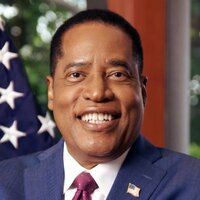The abundance of America is coming to an end.
At every level of government — global, federal, state and local — those who see capitalism as gluttonous and unfair are dreaming of a New World Order defined by “sustainability,” “equity” and “efficiency.” In reality, however, these buzzwords mean a worldwide, two-tiered caste system in which the planet’s “elites” rule over a population of miserable, hungry, nationless serfs.
But there is hope in this nightmare future, if one plans ahead. Preparedness, not paranoia, is key.
The first step in being prepared is to stop waiting on the government to rescue you. This crisis is approaching because of your government, not in spite of it. Voting will change nothing and politics will not save you.
To begin understanding this, we need only look at the Biden administration — a regime that was only able to seize power because of a rigged election. Most Americans are unaware that the so-called “Inflation Reduction Act” (which Biden considers one of his crowning achievements) provides $20 billion in agricultural subsidies to incentivize farmers to produce fewer crops and less livestock, all for the sake of “smart agriculture.” Yet one must ask, with Americans watching their wallets wither at the supermarket, why would our government want less produce on shelves?
And if curtailing our food supply were not enough, Washington has done nothing to stop multinational corporations and foreign interests from devouring America’s farmlands. According to the USDA, corporations own 80 percent of U.S. farmland today, the majority of which is not being operated for agricultural purposes.
Foreign governments are helping themselves to a slice of the American pie as well. The USDA’s most recent data reports that approximately 930 million acres are now in foreign hands. Saudi Arabia and the United Arab Emirates own more than 15,000 acres in Arizona and Southern California. Italy owns more than 102,000 acres in Missouri, and New Zealand roughly 18,000.
State governments — our check on the overreach of the federal government — are not immune to the anti-food agenda, either. In recent years, Pennsylvania, Maryland, Nebraska and Minnesota have outlawed seed sharing. During the height of the COVID hysteria, Michigan Gov. Gretchen Whitmer banned stores from selling seeds and gardening tools (but not lottery tickets). Meanwhile, in 2018, California enacted a series of regulations requiring more space for breeding pigs, veal calves and egg-laying chickens; only four percent of the state’s hog operations were able to comply with these regulations.
The role of artificial intelligence in the upcoming food shortages cannot be overstated. As of this year, over 200 AI-run agricultural startups exist in the U.S., where human laborers are being replaced by machines that perform pest control, manage soils and gather data on crops. The automation of the agricultural industry will leave America’s food supply vulnerable to cyberattacks, however, whether from foreign entities or our own government. (Call me a cynic, but I would place my money on the latter happening before the former.)
Given that America imports more food than any country, we do not have the luxury of ignoring food problems abroad. Since 2019, a Swiss organization known as the World Economic Forum has openly declared its intentions to reduce the world’s rice supply. The WEF’s membership includes President Biden, Chinese President Xi Jinping, U.K. Prime Minister Rishi Sunak, Canadian Prime Minister Justin Trudeau and hundreds of other leaders from around the world. Although rice is the world’s third-largest crop and provides one-fifth of the world’s calories, the WEF considers it a grave threat to greenhouse emissions in need of tighter regulations.
Grow vegetables and preserve food. Gardening is hard work, but as Benjamin Franklin told us, “There seem to be but three ways for a nation to acquire wealth. The first is by war, as the Romans did, in plundering their conquered neighbors … The second by commerce, which is generally cheating. The third by agriculture, the only honest way, wherein man receives a real increase of the seed thrown into the ground, in a kind of continual miracle.” (Whether or not gardening is an option for you, it is always wise to invest in an emergency long-term food supply.)
Collect books, especially old ones. In times of fortune and famine alike, investments in knowledge pay the best interest.
Learn to hunt. As a man who took little interest in hunting until my late 20s, I can assure you that it is never too late to learn this skill.
If you are a person of faith, pray every day.
Food is freedom. Without it, all else collapses, and nothing stands to prevent the American people from being forced to live off rations or stand in bread lines, not so much unlike the poor people of the Soviet Union or present-day socialist Venezuela. During the COVID lockdowns, we saw a foreshadowing of this as people in Denver and western Pennsylvania were seen on local news stations waiting in food lines — sometimes for hours.
In the face of a government that despises you, protecting yourself and your family is the most rebellious act of all.
Reed Cooley is a writer and publicist from Laurel, Mississippi. His commentary has been featured on Fox News and in dozens of publications across the country.
Shared with permission from the Laurel Leader-Call.







You must be logged in to post stack comments. Please Login or Signup (free).